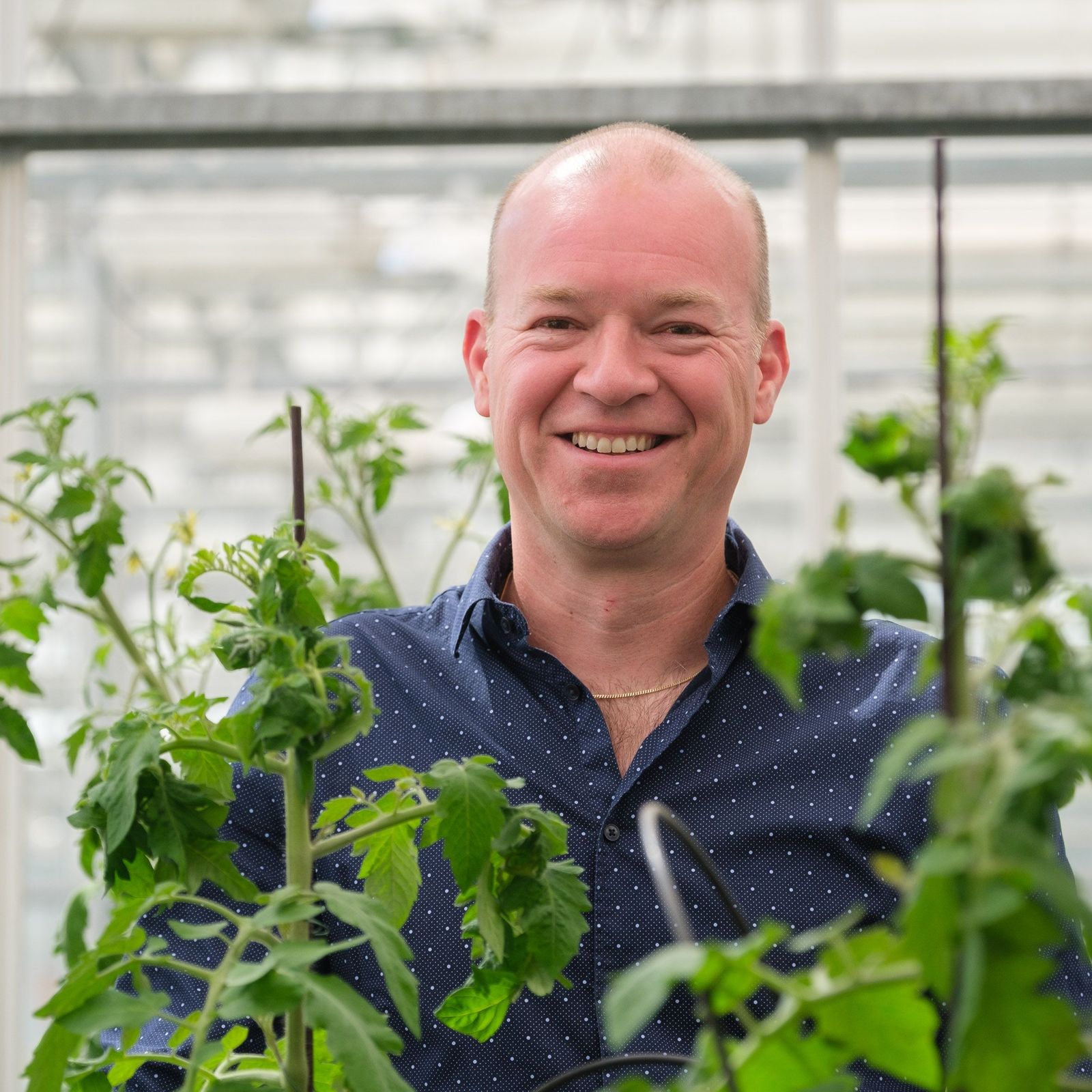Interview Bart Thomma
Head of the "Cologne Center for Microbial Interactomics", Institute of Plant Sciences, University of Cologne
You were selected for a Humboldt Professorship and to establish the Center for Microbial Interactomics at the Institute of Plant Sciences at the University of Cologne. What is behind this Center and what goals are you pursuing with it?
Indeed, as part of my Alexander von Humboldt proposal I have proposed to launch an inter-institutional and inter-faculty "Cologne Center for Microbial Interactomics" to bring together diverse groups that focus on research that involves the interaction of microbes with other organisms, including plant hosts (CEPLAS), animal and human hosts (CECAD Cluster of Excellence) as well as other organisms such as bacteria, fungi, and protists. I strongly believe that we should look beyond binary interactions of a microbe with its host, for instance, but involve the totality of microbes that act in such environments. Moreover, considering the importance of the environment on the establishment of such microbial interactions, especially in soil and aquatic environments, it would be nice to also involve geoscientists, for instance to address edaphic factors in the shaping of such microbial interactions.
"Such a large community with such a strong focus especially on fundamental research in plant sciences is almost unmatched."
Where did you work before and what were your main research interests?
I have performed my PhD research at the University of Leuven, in Belgium, where I worked on defense-related signal transduction in Arabidopsis thaliana, and showed that whereas salicylic acid-dependent immune signaling is involved in defense against biotrophic pathogens, jasmonate-dependent immune signaling is involved in defense against necrotrophic pathogens. Since 2003 I have worked at Wageningen University in the Netherlands, where I have slowly shifted my attention from Arabidopsis to crop plants, mostly tomato, and from the host-side to the microbial-side of pathogen-host interactions. Here I have become intrigued by mechanisms that are employed by pathogenic fungi to establish host infections, first by studing the tomato leaf mold fungus Cladosporium fulvum, and later by studying the broad host-range fungus Verticillium dahliae. I have focused quite a lot on effector molecules, trying to unravel their mode of action and explaining how they help fungi to cause disease. This has also led us into the area of genome evolution and the study of how pathogens adapt to their hosts. Verticillium dahliae is only known to reproduce asexually, and the question how a clonally-reproducing pathogen is able to maintain compatibility with an extremely broad range of host plants that comprises hundreds of species keeps to amaze me.
"I really welcome the opportunity for once in my career to make a stop, change tracks, carefully consider and weigh my options, and re-start the engines for a new journey on a new track towards a new destination."
What attracted you most to join CEPLAS?
As a joint initiative of Heinrich Heine University Düsseldorf (HHU), University of Cologne (UoC), Max Planck Institute for Plant Breeding Research Cologne (MPIPZ) and Forschungszentrum Jülich (FZJ), CEPLAS assembles a vast community of researchers in plant sciences with a very diverse expertise spectrum. Such a large community with such a strong focus especially on fundamental research in plant sciences is almost unmatched. Clearly, molecular plant-microbe interactions is one of the major research areas of CEPLAS, which is obviously extremely appealing to me as a plant pathologist.
Have you already settled in well in Cologne and at the University? What do you like most about Cologne?
Well, every move takes time; so many new things to discover and to think of, so many things to arrange! So I can’t say yet that I am settled, everything on track and full steam ahead. But I feel very welcome at the University of Cologne and in CEPLAS and enjoy making a new start in this fantastic environment. I really welcome the opportunity for once in my career to make a stop, change tracks, carefully consider and weigh my options, and re-start the engines for a new journey on a new track towards a new destination. As this involves moving from a very small and focused university to a very large university with a wide variety of disciplines, which offers so much more opportunities for collaboration and diversification of the research portfolio, and also from a very small town to a big and lively city, it is a really refreshing experience. Thus far, I enjoy every moment of it! Now I only still need to brush up my German.
